University of Zagreb To Make it Possible For Students To Study Gaming
May 24, 2021 - Five faculties of the University of Zagreb have joined their forces to establish gaming-related courses available for final-year undergraduates.
Studying game design and development will be made available at the university's drama school. At the same time, the other partners in this program are the Faculty of Electrical Engineering and Computing, the Academy of Fine Arts, the Faculty of Organization and Informatics in Varaždin, and the Faculty of Architecture.
The graduate study program will be part of the project Edu4Games and will offer four strands: Game Design, Game Art, Game Production, and Game Programming.
These future courses are envisioned so that the teaching and learning processes are focused on artistic and scientific practices and research, intensive practical work, and strong international cooperation with leading higher education institutions and professional organizations.
In the beginning, 20-30 students will enroll in this program.
For more news in Croatia, CLICK HERE.
Zagreb Faculty of Civil Engineering Scientific Study Recommended by ACI
February the 25th, 2021 - The Zagreb Faculty of Civil Engineering is known for its innovation and the type of successful students it ''breeds'' within its walls, and recognition from the United States is the latest accolade this Croatian institution has received.
As Novac writes, the American Concrete Institute (ACI) is the world's leading organisation in the field of design and construction of concrete structures, which deals with the development and preparation of proper standards, technical recommendations and reports, as well as the organisation of various educational programmes. It is an impressive organisation which can boast of over 30,000 members in over 120 countries. ACI publishes the "ACI Concrete SmartBrief" e-news on a monthly basis, with highlights for its members in the field of innovation.
It was precisely that monthly publication in which ACI recommended the work of researchers from the Faculty of Civil Engineering, University of Zagreb earlier this month. The article is called Non-Destructive Corrosion Inspection of Reinforced Concrete Using Ground-Penetrating Radar: A Review and was published in Materials magazine, published by MDPI (ISSN 1996-1944) by Ksenija Tesic, Ana Baricevic and Marijana Serdar, employees of the Department of Materials at the Zagreb Faculty of Civil Engineering. The American review analysed the advantages and challenges of using radars to determine the corrosion of reinforcement in concrete in real time.
The article was created as part of the doctoral research of Ksenija Tesic, a doctoral student employed on a project entitled "An autonomous system for reviewing and predicting the integrity of transport infrastructure - ASAP", which is co-financed by the European Union from the European Regional Development Fund.
The Zagreb Faculty of Civil Engineering (GF) of the University of Zagreb is otherwise the main beneficiary and coordinator of the ASAP project, which is implemented in cooperation with its partners, the Faculty of Mechanical Engineering and Naval Architecture (FSB) and the Faculty of Electrical Engineering and Computing (FER) of the University of Zagreb.
By connecting the fields of construction, robotics and computing through the ASAP project, an interdisciplinary core has been created that offers an innovative solution for maintenance, monitoring and management of buildings, and is a future strong strategic partner to the public and private sector in the field of construction modernisation, and the Americans think so too.
For the latest travel info, bookmark our main travel info article, which is updated daily.
Read the Croatian Travel Update in your language - now available in 24 languages.
Join the Total Croatia Travel INFO Viber community.
International Study in Croatia: Rijeka's Biotech for Life Sciences Programme
January 29, 2021 - Options for international study in Croatia are on the rise - meet the English-language 'Biotechnology for the Life Sciences' Masters programme at Rijeka University, as presented by resident lecturer, Nick Bradshaw.
When students say that they are going abroad to study, you would normally expect them to be aiming for universities in the USA or Northern Europe. A few months ago, however, and in spite of the pandemic, a small group of students from the UK, Italy and Nigeria made the decision to travel to Croatia and begin their master’s study at the University of Rijeka. They represent the first generation of students to enrol in the Department of Biotechnology’s new international graduate study program, “Biotechnology for the Life Sciences” (Biotech4LS).
Biotechnology is a general term for the use of biology and living things to create products, whether for medicine or more everyday life. The rapid generation of vaccinations against the new coronavirus is a great example of modern biotechnology in action. The Biotech4LS course is particularly interested in how we can use biotechnology techniques for life sciences (biology or medical) research. This focus on research (as well as the fact that it is taught in English) is what makes Biotech4LS a modern program that appeals to international students.
Research experiments, whether done traditionally in a laboratory or simulated on a computer, lie at the heart of modern science, and the abilities required to be a successful researcher can be very different from those required to complete a traditional knowledge-based university degree. Biotech4LS therefore specifically aims at developing the skills students need to pursue a future career in research, whether at a University or in industry, and is one of only a handful of courses in the entire European Union to take this approach. As a result, this course will not only be training a new generation of dynamic young scientists, but also highlighting both Rijeka and Croatia more generally as an emerging centre for scientific research when (and if!) they decide to return to their home countries.
To do this, most of the traditional teaching of scientific facts and knowledge found in traditional courses has cut out from Biotech4LS. The students are instead assumed to already be familiar with most of the basics, and are trained on how to find anything else they need to know through searching of the scientific literature. Instead, they spend the first year learning skills needed by modern scientists, including statistics, writing, project management and presentation skills, as well as being introduced to scientific ethics and handling of intellectual property. In conjunction with this, students spend two extended periods of time working in research laboratories, learning by doing alongside scientists engaged in cutting edge research.
It is possible that you are reading this and thinking that Rijeka might not seem an obvious place for cutting line research. The Department of Biotechnology, however, represents a major investment by the European Structure and Investment Funds, with whose support the Department gained a variety of state of the art equipment, including powerful microscopes, devices for analysing proteins, and even an on-site supercomputer. With this advanced equipment, staff at the Department have been making breakthroughs in a wide array of areas, ranging from the medical (mental and neurological illness, viruses and the immune system) to the commercial (biological and chemical analysis of food and wine). For the second year of their course, these students will find themselves integrated into one of these laboratories, undertaking their own personal research and making their own unique contribution to our scientific knowledge.
Each year, 10 students will be accepted for Biotech4LS, and the first round of applications received five times this many applicants, from more than 10 countries. While not all of the students selected managed to travel to Rijeka - a result of the unfortunate timing of launching in the middle of a global pandemic - several students have nonetheless made it. They have been settling into the program and life in Rijeka for three months now, and are now preparing to begin their laboratory work (as well as beginning to learn the Croatian language – nije lako!). They are excited that they will soon be able to soon begin their own independent research projects, and growing very fond of the quality of life in Rijeka.
A call for applications for the second generation of students (to begin October 2021) was made recently and runs until 28th February. It is open to both international and Croatian students.
More information on the program can be found in the course’s introductory video above, and on the course website, which also contains full application instructions. Establishment of Biotech4LS was supported by the European Social Funds project “Strategic Internationalisation of Graduate Studies in Mathematics and Biotechnology – OPTILIFE”.
And if you are wondering what Rijeka is like as a place to live, find out why some consider it to be the best place in Croatia. Where is the Best Place to Live in Croatia? The Case for Rijeka.
Faculty of Science Gets First Biomedical Mathematics Study in Croatia
December 7, 2020 – The Department of Mathematics of the Faculty of Science, University of Zagreb, introduces a new and the first graduate biomedical mathematics study in Croatia, which is also the first such study program in this part of Europe. It will be taught entirely in English.
As Jutarnji.hr reports, the news was announced on Friday, December 4, at the final press conference of the BioMedMath project, funded by the European Union within the Operational Program Effective Human Resources European Social Fund.
Project manager prof. Dr. sc. Hrvoje Šikić points out that the basic idea of the need for such a study has been present for some ten years, but the support of the European Social Fund has given a great impetus to the implementation of this project, which comes at the right time.
"The growing role of mathematics in biology and medicine is already noticeable to the general public, mainly due to the realization of the famous Human Genome project. Recent events related to this year's pandemic and daily reporting on various predictions based on mathematical models highlight the need for collaboration between biologists, medical professionals, and mathematicians.
Among other things, today, sophisticated mathematical methods are present in genetics, bioinformatics, tumor growth modeling, brain research, cardiovascular system, organ growth processes, aging processes, evolutionary processes, ecology," said prof. Dr. sc. Šikić.
The study of biomedical mathematics is a two-year international program taught entirely in English and is primarily intended for students who have completed university undergraduate study of mathematics or equivalent study anywhere in the world. Along with additional mathematics courses, it will also be open to students who have completed various other related undergraduate studies.
Since this is the first of such a study program in Croatia and beyond, the project has established cooperation with an institution with many years of experience in this field – the University of Oxford, one of the world's leading centers for biomedical mathematics. The project manager also notes that the lecturers at the study will be experts in mathematics, biology, and medicine.
"Fortunately, we managed to gather a fantastic group of associates from the Department of Biology and Mathematics, School of Medicine, and the Ruđer Bošković Institute. We can offer a modern, globally competitive program, which is based mainly on research that project associates regularly conduct in their scientific work," said Šikić.
Dean of the Faculty of Science, prof. Dr. sc. Mirko Planinić said that the Faculty's mission is to change our society with knowledge.
"Opening a new study of biomedical mathematics in English is one step in that direction. Our greatest treasures are talents, and through this study, these talents are developed and connected with Croatia due to the stimulating environment at our Faculty, which managed to gather a team of internationally recognized experts," said Planinić.
Work on the project ends at the end of this year when the program goes into the accreditation process. Since the University of Zagreb already has significant experience with the influx of international students (student visas, organization of stay, accommodation, learning about the Croatian language and culture), they expect that the study will start very soon after the international evaluation.
"We are sure that the experts we will educate in this program will be ambassadors of scientific excellence. There will be places for such trained staff on the labor market and in a society in which trust in scientific expertise should be constantly developed," concluded the dean.
To read more news about Croatia, follow TCN's dedicated page.
Faculty of Economics University of Zagreb Celebrates 100 Years
ZAGREB December 5, 2020 – With over 9000 students currently enrolled, the Faculty of Economics University of Zagreb is the largest faculty in Croatia. In 2020, this internationally renowned institution celebrates its 100th birthday, so TCN decided to take a closer look.
Every other student you meet in Croatia seems to study economy. It makes you wonder where they all go to after their studies are complete. Are there really so many positions for economists in Croatia?
In 2020, the Faculty of Economics University of Zagreb celebrates its 100th birthday. The long list of its famous former students gives a clue to where all the Croatian economists go – the tourism sector, diplomacy and international relations, business, politics and government.
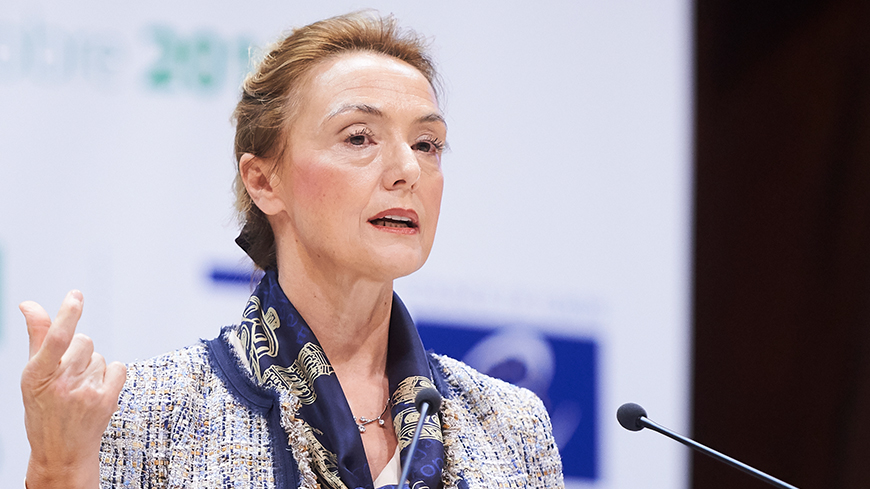 Marija Pejčinović Burić, a graduate of the Faculty of Economics of the University of Zagreb and the current Secretary General of the Council of Europe. After graduating, like Savka Dabčević-Kučar, she became o doctor of economics and before taking her current position served as Croatia's Deputy Prime Minister and Minister of Foreign and European Affairs © Council of Europe
Marija Pejčinović Burić, a graduate of the Faculty of Economics of the University of Zagreb and the current Secretary General of the Council of Europe. After graduating, like Savka Dabčević-Kučar, she became o doctor of economics and before taking her current position served as Croatia's Deputy Prime Minister and Minister of Foreign and European Affairs © Council of Europe
Graduates of the Faculty of Economics University of Zagreb have served as mayors of Zagreb and Split, Deputy Prime Minister of Croatia, Minister of Finance, Minister of the Economy, Secretary-General of the Council of Europe, Governers of the Croatian National Bank, Vice-President of the UN World Food Council, President of the Croatian Football Association, Minister of Environmental and Nature Protection, special advisors to the President of Croatia and countless university professors, including several former rectors of the University of Zagreb. Within its graduate professors, it has produced no less than 19 full members of the prestigious Croatian Academy of Sciences and Arts, more than any other single institution in the country. Savka Dabčević-Kučar, a graduate of the Faculty of Economics of the University of Zagreb. Born on Korčula, she became an anti-fascist in World War II, joining the partisans after her brother was beaten by fascists. After graduating, she continued to study at the faculty and became one of the first doctors of economics in Croatia, raising eyebrows by choosing to write her doctorate dissertation about a non-Marxist economic theorist (Englishman John Maynard Keynes). She became a professor at the faculty in the 1950s and despite her great advances in political life, remained a committed teacher at the faculty until 1971. In 1967, she was elected President of the Socialist Republic of Croatia. In 1969, she moved to an even more important position - that of president of the Central Committee of the League of Communists of Croatia. She was the first woman in Europe to be appointed head of government of a political entity and the first female in Croatia to hold an office equivalent to a head of government. In this picture, she addressed supporters on Ban Jelacic Square Zagreb during the movement called the Croatian Spring, which called for greater autonomy for Croatia. At the address, thousands cheered her as “Savka, queen of the Croats”. For her pivotal role in the movement, she was removed from her positions and public life and retired. She returned to politics in 1990 upon the collapse of communism in Europe and during the Croatian war of independence was one of the few politicians who visited the front lines of battle in Slavonia, Petrinja, Pokupski and the Dalmatian hinterland
Savka Dabčević-Kučar, a graduate of the Faculty of Economics of the University of Zagreb. Born on Korčula, she became an anti-fascist in World War II, joining the partisans after her brother was beaten by fascists. After graduating, she continued to study at the faculty and became one of the first doctors of economics in Croatia, raising eyebrows by choosing to write her doctorate dissertation about a non-Marxist economic theorist (Englishman John Maynard Keynes). She became a professor at the faculty in the 1950s and despite her great advances in political life, remained a committed teacher at the faculty until 1971. In 1967, she was elected President of the Socialist Republic of Croatia. In 1969, she moved to an even more important position - that of president of the Central Committee of the League of Communists of Croatia. She was the first woman in Europe to be appointed head of government of a political entity and the first female in Croatia to hold an office equivalent to a head of government. In this picture, she addressed supporters on Ban Jelacic Square Zagreb during the movement called the Croatian Spring, which called for greater autonomy for Croatia. At the address, thousands cheered her as “Savka, queen of the Croats”. For her pivotal role in the movement, she was removed from her positions and public life and retired. She returned to politics in 1990 upon the collapse of communism in Europe and during the Croatian war of independence was one of the few politicians who visited the front lines of battle in Slavonia, Petrinja, Pokupski and the Dalmatian hinterland
The Faculty of Economics University of Zagreb is the largest faculty in the country. Over its 100 year history, it has established itself as an internationally respected institution. Today, it has around 9000 persons enrolled, caters for international students with some courses in English and has produced over 86, 000 graduates, including 856 doctors of science.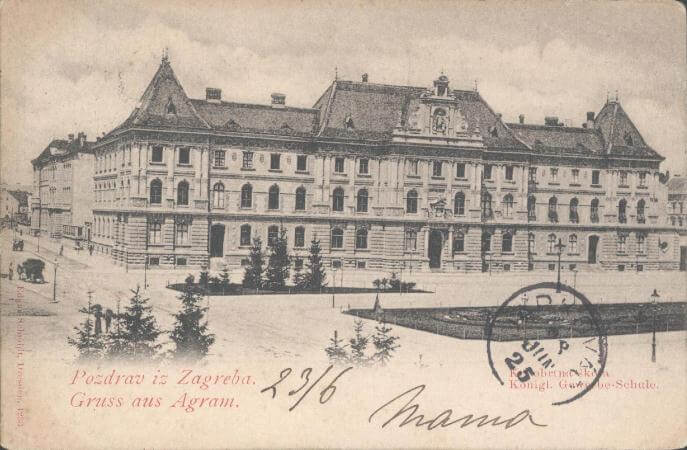 In its infancy, students of the College of Trade and Transport were taught at the Technical College, which is today the Museum of Arts and Crafts in Zagreb © National and University Library in Zagreb
In its infancy, students of the College of Trade and Transport were taught at the Technical College, which is today the Museum of Arts and Crafts in Zagreb © National and University Library in Zagreb
The history of the Faculty of Economics University of Zagreb starts with the opening in 1920 of its forerunner, the Zagreb College of Trade and Transport. Its purpose was to educate in the areas of banking, domestic and international trade, transport, consular services, insurance and the education of teachers. Its courses lasted three years and it proved so popular that in the academic year 1923/24, some 1,125 students were enrolled.
The institution held college status until 1925 when Stjepan Radić became the Minister of Education. It must have been unusual for Radić to find himself as part of the government of the Kingdom of Serbs, Croats and Slovenes, the state which preceded the Kingdom of Yugoslavia. Today, Radić is best remembered as a politician outspoken in his advocacy of autonomy for Croatia. Before his appointment to the government, he had always done so in opposition. Indeed, he had been imprisoned several times for his views, which were proclaimed loudly in his writings or in person (he was a gifted public speaker). As recently as March 1925 he had been in prison but, when the political party of which he was a member officially recognised the monarchy and the state constitution, he was freed. In a remarkable turnaround, before the year's end, he was a minister in the government.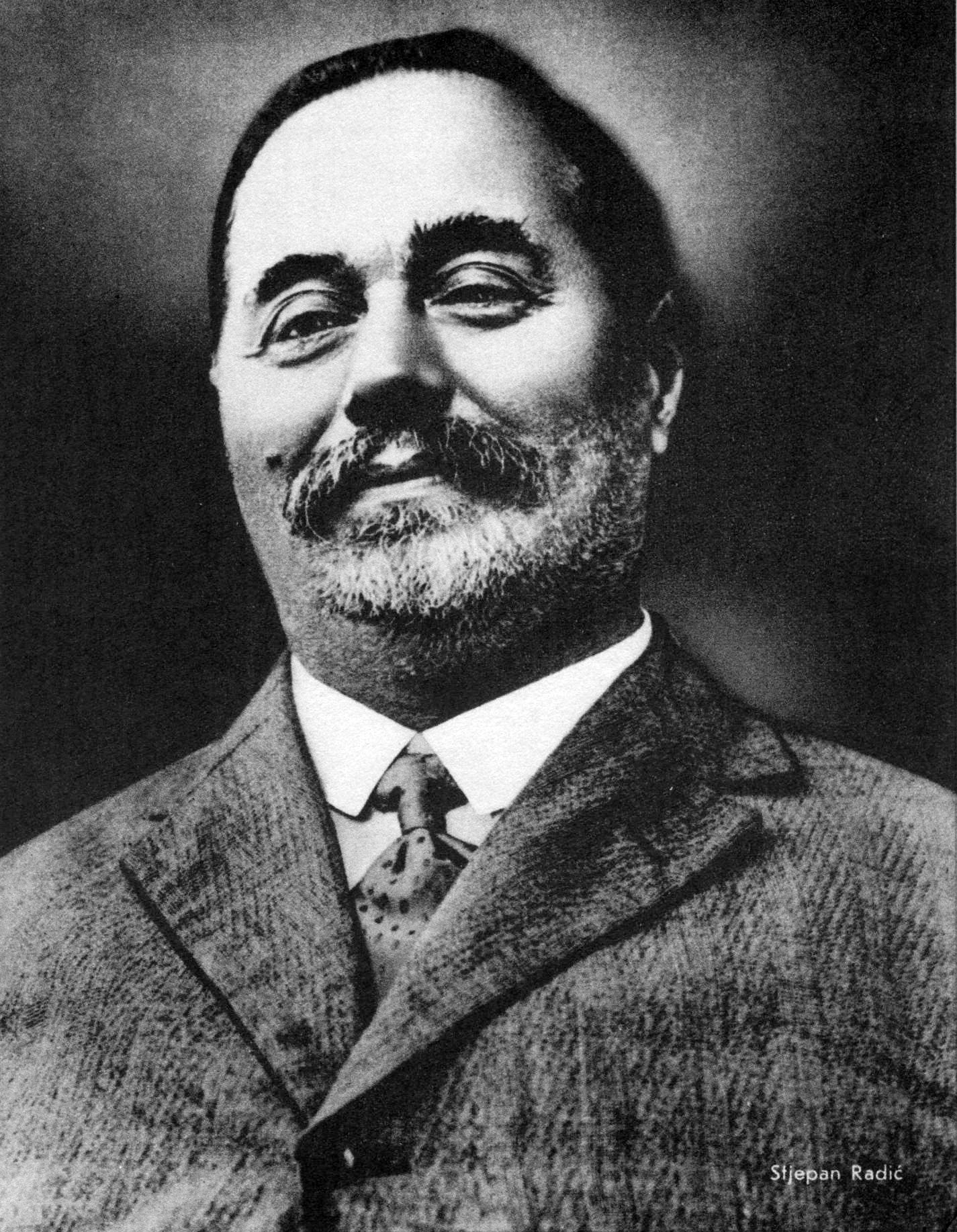 Stjepan Radić, pictured in the 1920s © public domain. In 1895 Radić was sent to prison for the public burning of the Hungarian flag in Zagreb – alongside Antun Dabčević, the father of Savka Dabčević-Kučar.
Stjepan Radić, pictured in the 1920s © public domain. In 1895 Radić was sent to prison for the public burning of the Hungarian flag in Zagreb – alongside Antun Dabčević, the father of Savka Dabčević-Kučar.
Stjepan Radić's desire for Croatian autonomy was not born from the ideals of the political class of Zagreb. The ninth of eleven children, born to a peasant family in a small village on the banks of the Sava river, just north of Sisak, Radić was very much a representative of the people whence he came. To him (and others in his family – his brother and nephew also being prominent politicians), education had the most important role to play in emancipation. He had lived in poverty in order to complete his own - after being banned from university-level educational institutions throughout the whole of the Austro-Hungarian empire for his protests against the state, he travelled penniless to Russia, France and Switzerland to complete his studies. In the latter, finance was one of his chosen subjects.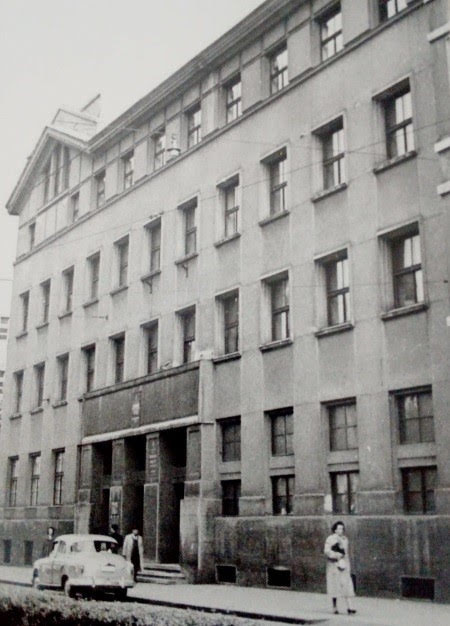 The first dedicated building of the Higher School of Economics and Commerce was located on the corner of Bauerova and Zvonirmirova © Faculty of Economics University of Zagreb
The first dedicated building of the Higher School of Economics and Commerce was located on the corner of Bauerova and Zvonirmirova © Faculty of Economics University of Zagreb
Under Radić's spell in office, the Zagreb College of Trade and Transport became the Higher School of Economics and Commerce. Its courses extended to four years, it attained university status. With no building designated to the increasingly popular institution, students had sometimes been taught at the Technical College (today's Museum of Arts and Crafts) and in parts of what is now the Mimara Museum. A dedicated home for the faculty was authorised and its construction started in 1927. Classes began at the faculty, located on the corner of Bauerova and Zvonimirova, in 1928, but within the decade the institution had outgrown its home and a plot of land in Svetice was acquired in order to build a new, larger facility. Its construction was interrupted by the Second World War and students would end up being taught on the Bauerova and Zvonimirova site all the way up to 1952.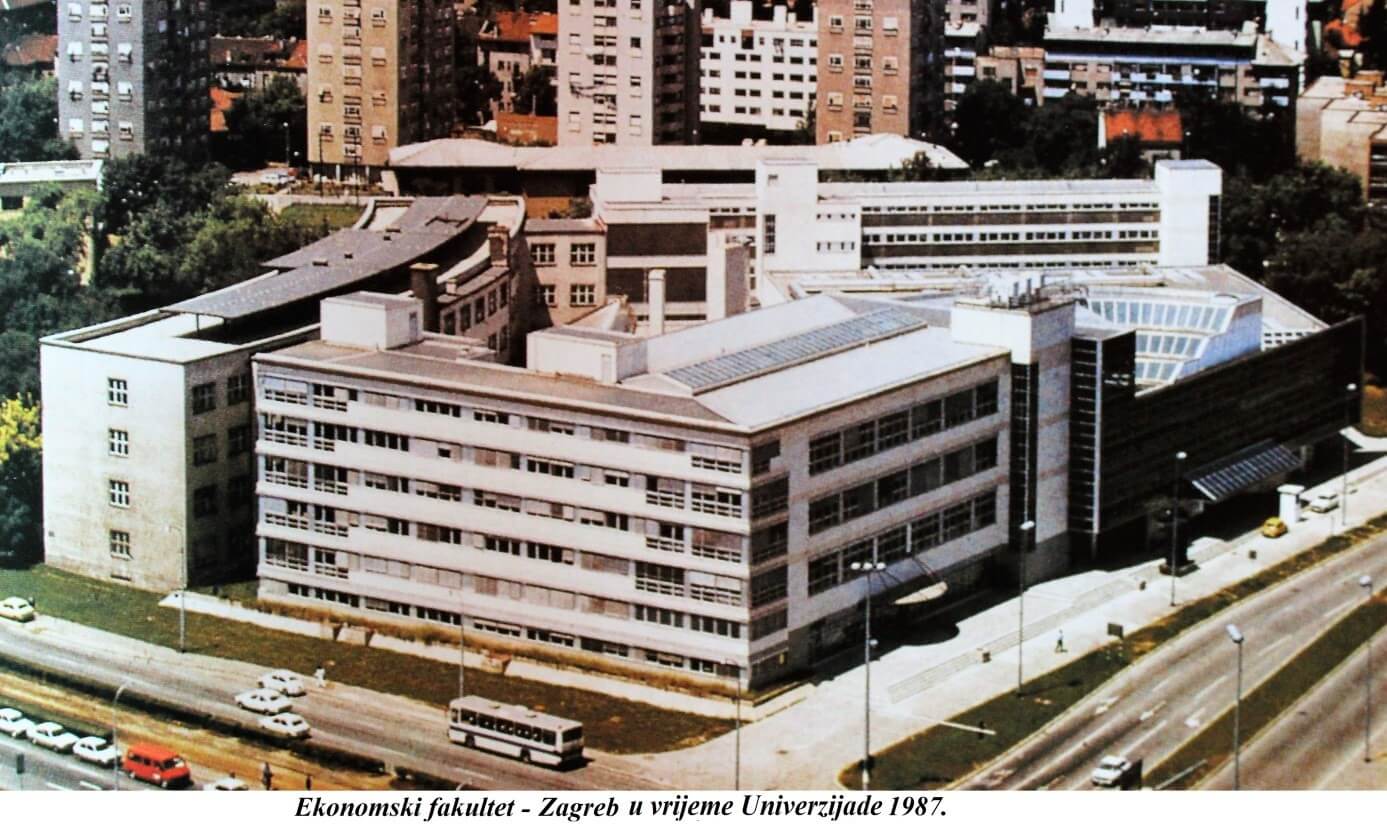 The faculty's modern building, pictured in 1987. Today, the faculty has 17 departments - Finance, Demography, Economic Theory, Business Economics, Informatics, Macroeconomics and Economic Development, Marketing, Mathematics, International Economics, Business in Foreign Languages, Organization and Management, Law, Accounting, Statistics, Trade and International Business, Tourism, Physical Education and Health © Faculty of Economics University of Zagreb
The faculty's modern building, pictured in 1987. Today, the faculty has 17 departments - Finance, Demography, Economic Theory, Business Economics, Informatics, Macroeconomics and Economic Development, Marketing, Mathematics, International Economics, Business in Foreign Languages, Organization and Management, Law, Accounting, Statistics, Trade and International Business, Tourism, Physical Education and Health © Faculty of Economics University of Zagreb
In 1947, the Higher School of Economics and Commerce became the Faculty of Economics University of Zagreb. In 1952, the faculty officially moved to the new site in Svetice. In 1968 it expanded once more when it merged with the 12-year-old College of Economics. Since then, the building at Svetice has received major upgrades and further facilities of the faculty can now also be found at the university campus in Borongaj, in Varaždin, in Koprivnica and in Bjelovar. After a century of existence, the Faculty of Economics University of Zagreb's longstanding difficulties to meet the popularity of its courses with the space available are now over. Not only can they accommodate every Croatian economy student who makes the grade, but they are also able to offer places to some of the best international students. It would surely come as no surprise if they are still educating the future elites of business, banking, finance and politics in another 100 years.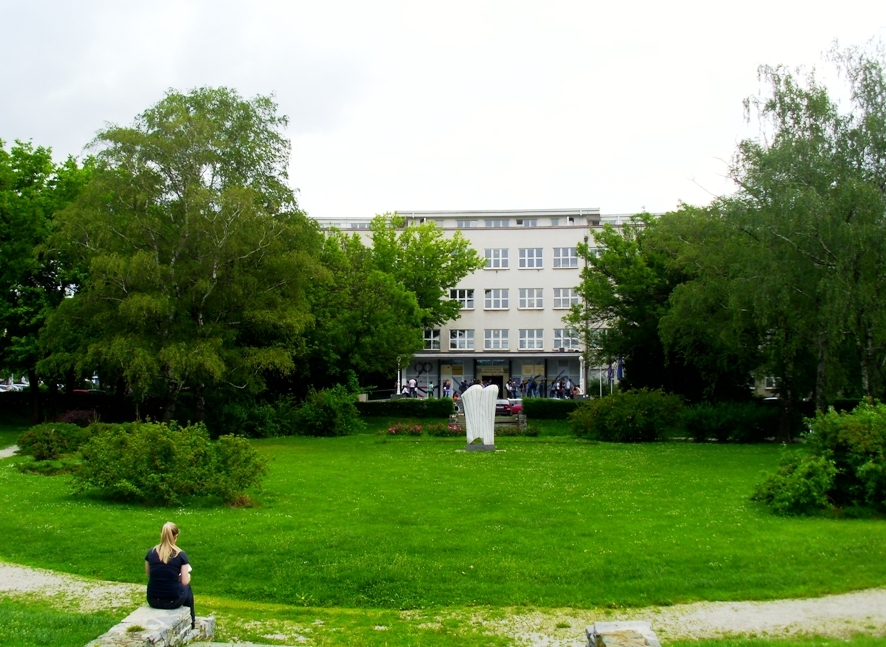
The Faculty of Economics University of Zagreb site in Svetice, as seen from its garden © Wolf - Pidgeon
Second Adria Business Network Held at Algebra LAB in Zagreb
November 14, 2019 - The second Adria Business Network event was held at the Algebra LAB in Zagreb, organized by entrepreneurs Željka Barišić and Kristina Krstinić. The event is aimed at business networking in Croatia and the region, creating business opportunities and encouraging continuing education. Through the event, everyone is offered the chance to find new clients and enter into lucrative deals.
Guest lecturer Damir Bicanic, head of Funderbeam SEE, pointed out what is needed to receive an investment through the Funderbeam platform, how many investors are currently within the platform, and what projects have been invested in since January 2017 when the platform came to Croatia.
Adnan Mehmedovic Medo, CEO/Director of Marketing, PR & Business Development of Fresh Island Festival/RNB Confusion, also guest speaker at the event, briefed the attendees on what is needed in a presentation to make investors invest €700,000 and shared information on events and festivals with global potential coming to Croatia next year.
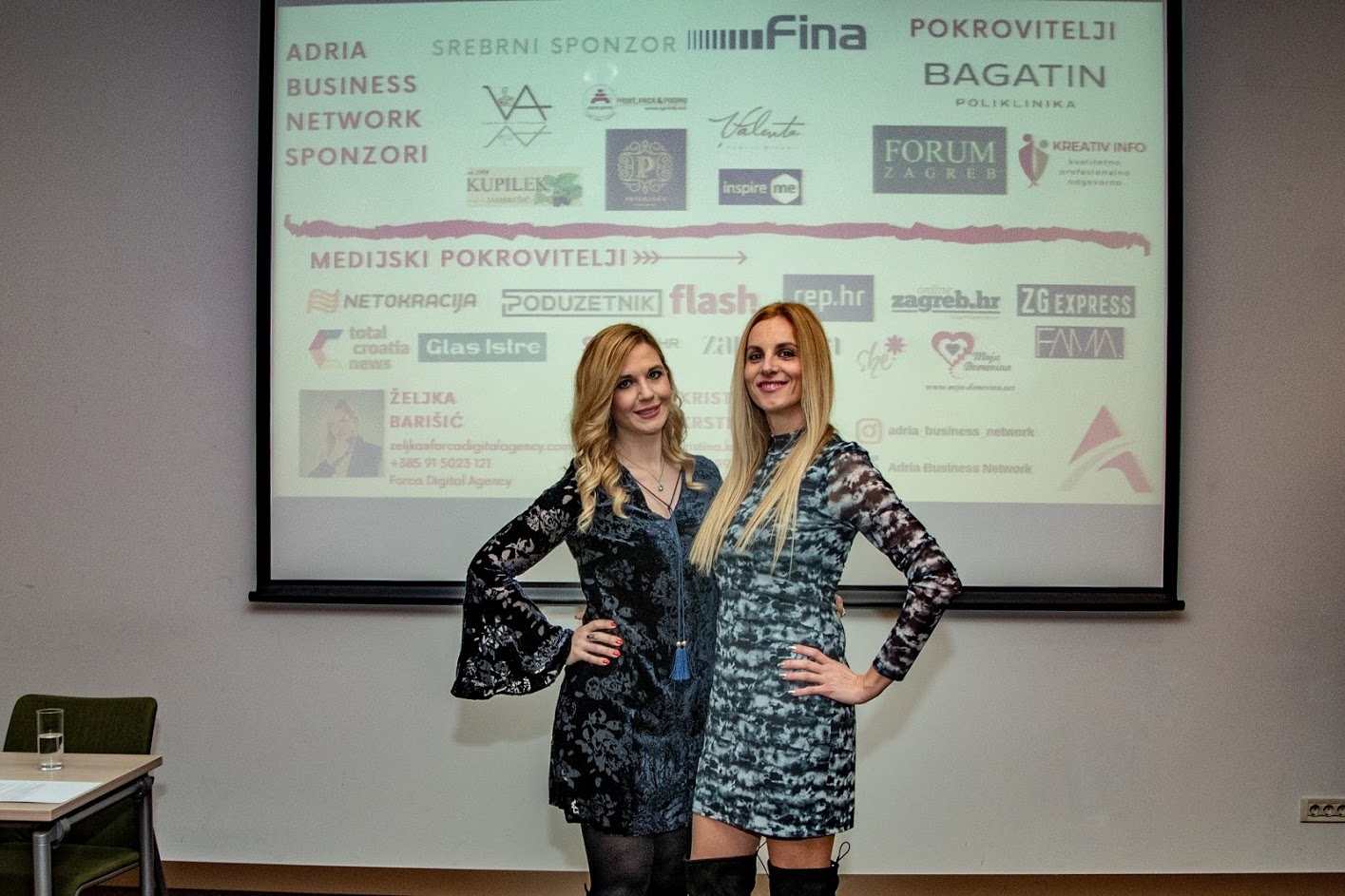
“An extremely inspiring evening in which, thanks to our guest lecturers, we learned the details of doing business through Fuderbeam, as well as the novelties of the entertainment industry coming to Croatia in 2020. With each new event, we strive to provide current participants with up-to-date information and developments in the business world, and this is our imperative,” said Željka Barišić, an entrepreneur and one of the founders of Adria Business Network.
Kristina Krstinić, also an entrepreneur and founder of Adria Business Network, had the following opinion about the event: “With the arrival of Fundrbeam in Croatia, as an innovative global company financing platform, not only is capital easier for innovative domestic companies, but the overall procedure is easier for potential investors. As a business consultant, I have had the opportunity to work with several successful innovative companies in Croatia, and I believe that such platforms are not only welcome but also indispensable, as they encourage the development of products with significant added value, and thus contribute to the global growth of innovations, which are very important in to today's world."
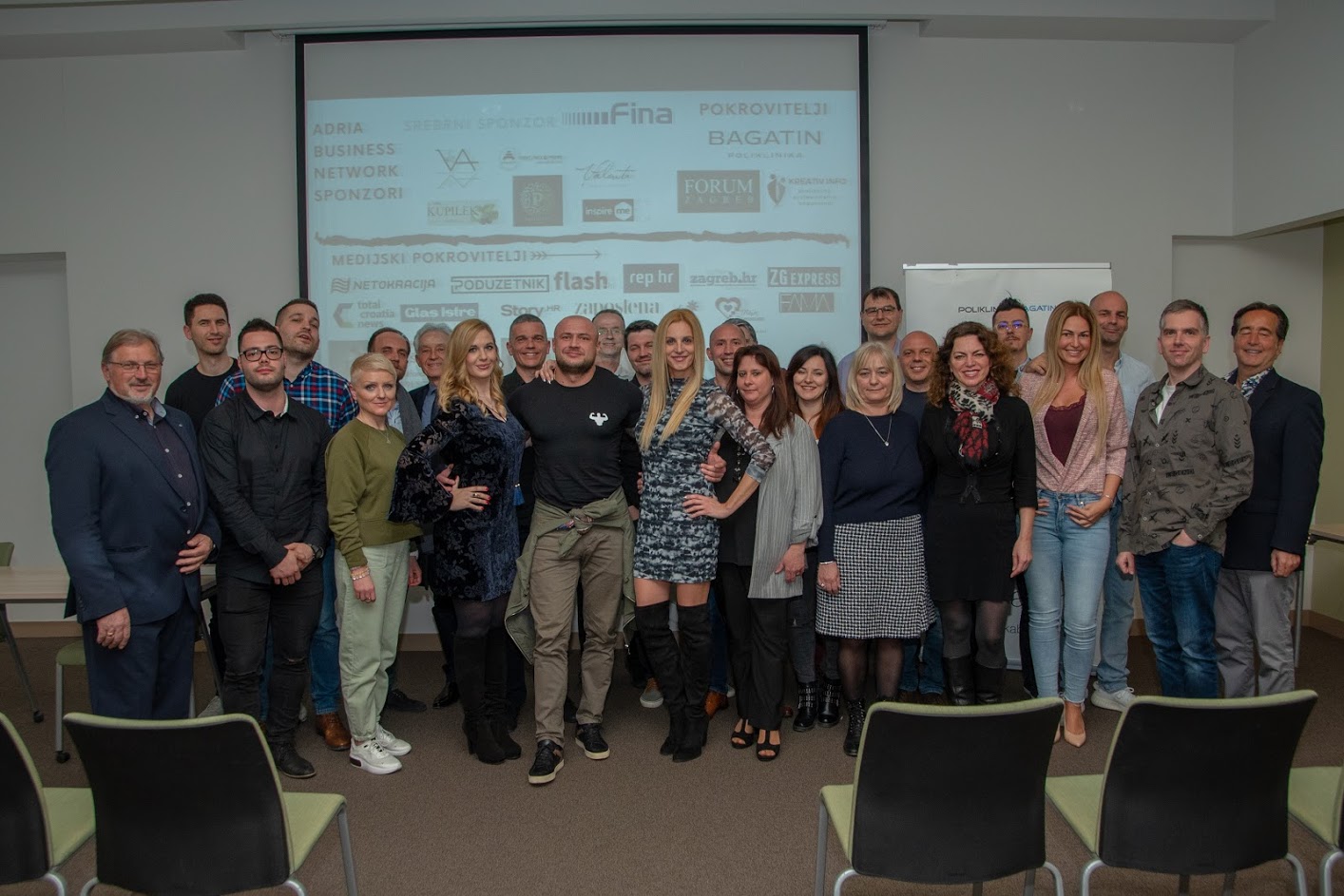
The new face of the event was Joseph Novosel, aka DearLeaderJoe: “I come to the event and find out that people are getting hundreds of thousands of euros in investments through the Funderbeam platform. I tore up my party membership card and knocked on Funderbeam's door. Thank you to the organizers for connecting us.”
Fashion brand Bonamie dressed the presenter and the event organizers for the evening, while hair was attributed to Ruža Salon, a symbol for quality and beauty.
The general sponsor of the event is Algebra, while the other sponsors are photographer Philipp Tomaš, Avon, InspireMe, Vina Posavec, Tomino wine, Aero Print.
The media sponsors of the event are magazine and portal Poduzetnik, magazine and portal Zaposlena, Netokracija, Bug, She.hr, Zagrebonline.hr, Story.hr, Rep.hr, Glas Istre, Glas Hrvatske, Flash.hr and Total Croatia News.
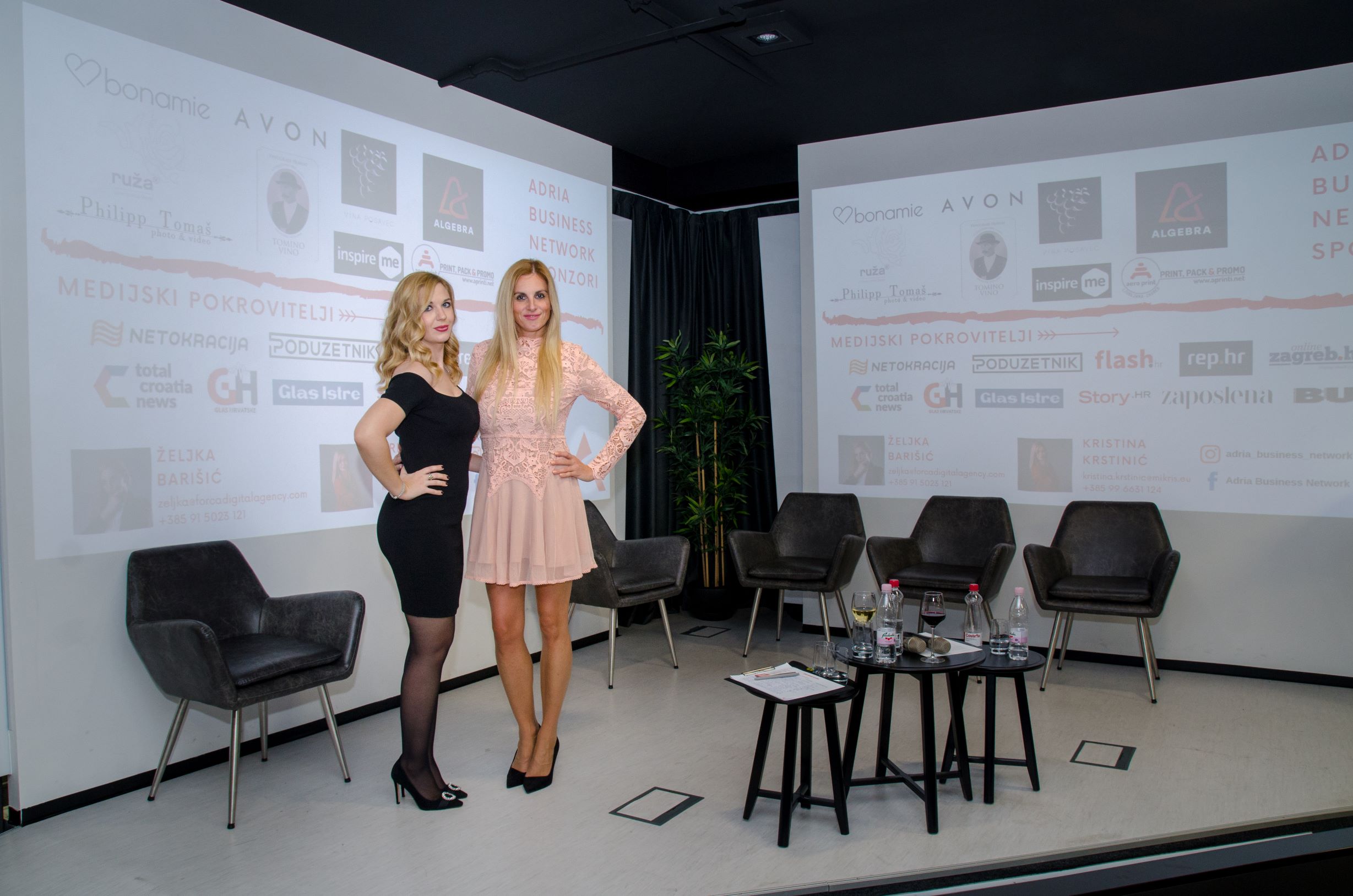
The next Adria Business Network event takes place on 18.12.2019 at 6 pm at the Bagatin Clinic, when it is hosted by the director of the Bagatin Clinic, Ognjen Bagatin.
You can follow Adria Business Network on Facebook here.
To read more about business in Croatia, follow TCN's dedicated page.
More Than Third of Graduates with Diplomas in Croatia Unemployed
As Mirela Lilek/Novac writes on the 27th of April, 2019, Croatia's situation still isn't good: the country is continuing to ''produce'' graduates with the third lowest employment rate in the whole of the European Union, and as a result, taxpayers pay more and more money for them. According to new data from Brussels, based on a comparative survey of youth employment among Croats with diplomas earned in the last three years, a third of highly educated people aged between 20 to 34 in Croatia have no jobs. Only Italy and Greece are worse.
Of the 28 countries EU member states, Croatia ranked 26th with a 66 percent employability rate. Four positions above Croatia lies Romania, Bulgaria is six places above, and Slovakia is nine places above. Croatia's neighbour to the north, Slovenia, is eleven places above Croatia, Poland is thirteen places above (impressively right behind Ireland and Denmark), and the Czech Republic, with an 89.9 percent employability rate which has impressed the European Commission's experts - has risen to an enviable fourth place.
Malta is in first place in Europe as an employer of its graduates with diplomas, the employment rate of Maltese students stands at a very impressive 94.5 percent, even better than Germany, which boasts a rate of 90.9 percent, followed then by the Netherlands, the Czech Republic, and then Austria. The EU average is on the rise, back in 2014 it stood at 76 percent and in 2018 it stood at 80.2 percent. Unfortunately, the Croats have been close to the bottom for years, more specifically for fifteen years, as it has a below-average rate of employability in relation to the EU. Of course, rather than attempt to fix the problem directly, the Croats are doing what the Croats always do - continuing to debate and argue over who is (more) to blame for such embarrassing conditions.
Economists see the issue as being that the Croats aren't adapting easily to the market, and that Croatia also has an old education system. At Croatia's universities, they argue that the key issue isn't Croatia's higher education institutions, but an underdeveloped labour market, low personal income, and demotivating working conditions. Experts from the European Commission have given a relatively simple answer: Investing in education will benefit everyone in Europe.
Let's see how they explain their theories in some of the country's universities, starting with the largest "producers" of graduates in the entire country, the Faculty of Philosophy and Economics in Zagreb.
''We're aware of the importance of linking study programs and labour market needs. In this regard, the Faculty of Economics makes an effort to make it easier for students to access the labour market by establishing multilateral cooperation with companies and respectable institutions that enable students to perform high-quality professional practices,'' stated Sanja Sever Mališ, who deals with strategic partnerships and projects at the Faculty of Economics in Zagreb. The basic message from this particular Zagreb university is that "they connect students and employers so their best students can find work even during their studies." Therefore, there is no concern for them.
On the other hand, Vesna Vlahović-Štetić, Dean of the Faculty of Philosophy, admits that Croatia's humiliating placement at the bottom of the employability scale of graduates is still something to be very concerned about and therefore the causes of that need to be looked at.
''I assume that part of the problem lies in insufficient development and the ability of the economy and the public sector to absorb newly graduated students. On the other hand, the question is how many colleges and higher education institutions meet the needs of society with their respective programs. At the state level, in some professions there's hyper-production, and in others there is a lack of experts. Additionally, study programs should be regularly updated and developed to meet not only society's needs but also predict what competences professionals will need in the future,'' the dean says.
Data obtained through the HKO project of the Faculty of Philosophy shows that the employability of their students in the year after graduation is 75 percent. They believe this is the result of "the excellent professional and generic competences of their graduates".
"We're convinced at the Faculty of Philosophy that the study programs need to be further improved, so we have just started the study reform process and I'm sure the future employability of our students will be even better," says the university's dean.
The rector of the University of Rijeka, Snježana Prijić Samaržija, doesn't want to run away from the fact that Croatia's universities do hold a share of the responsibility for this issue but, again, she's convinced that Croatia's higher education institutions are't the key cause of the problem, but the underdeveloped labour market definitely is.
Rijeka University has eleven faculties and four departments. On their official page, they point out that they are a modern European university and a centre of excellence within the region and beyond, and that they are responsible for the social and economic development of the community. Samardžija claims that she doesn't want to relate the worrying data on the high rate of unemployed with higher education, but that "it should be borne in mind that higher education is a better job-finding guarantee, such as landing a permanent position,"
"Of course, it's possible to say that the employment rate would be higher if universities, by some automation, increased their quotas for the job-type deficit and reduced those profiles for which the employment bureaus take care of. In that sense, people often say Croatia's institutions and their enrollment policies aren't adapted to the labour market. However, the situation isn't quite that simple.
For example, the market seeks shipbuilding engineers, we have shipbuilding studies and a corresponding quota at the University of Rijeka, but there's a fall in interest for those studies. We can understand the students' fears about the situation with Croatia's shipyards, but the fact is that the need for this profession is still growing. Similarly, despite the lack of mathematics and physics teachers and the excellent studies we have, the interest doesn't match the employment opportunities,'' she explained.
The University of Rijeka decided to put seven studies ''into retirement'' this year, and isn't accepting students for them. Those are acting and media, dental hygiene, computer science in combination with professional studies of medical-lab diagnostics, mechanical engineering, shipbuilding, and electrical engineering.
On the other hand, there's a considerable level of interest in studies that don't guarantee quick and permanent employment at all, such as the arts, cultural studies, and psychology.
''Young people choose studies according to their personal interests, not just employment opportunities. They don't necessarily just want a permanent job, many of them are accustomed to gaining work experience in different institutions, at different places of work, and in different countries. More and more, they prefer to individually define the curriculum through courses and practical competences beyond their study program(s), which will make their expertise comparatively more special and desirable. In the midst of a sluggish and non-ethnological labour market, more and more students enjoy prolonged youthful relationships with their parents or rent apartments,'' says Snježana Prijić Samaržija.
"I don't want to run away from the responsibility of the university, we're constantly thinking about the jobs of the future, we're working on increasing the quota for the deficit professions and improving our students' competences to reduce the unemployment rate. However, time is needed to see the results of these measures because the higher education cycle lasts for at least five years. It should be understood that universities can't just simply increase quotas for occupations for which there's a labour market need because new employment is frozen,'' noted the Rector of the University of Rijeka.
As Croatia's paradoxical situation of having no work but plenty of jobseekers, yet plenty of work and no staff, it's hard to predict the outcome of education system reforms as the market and its needs can alter so rapidly. Will Croatian students simply continue to trickle away on the stream of a proverbial leaking tap out into Western Europe, leaving Croatia with the rather unenviable title of a country that educates its citizens for work abroad? It's likely such a scenario will continue at least for the foreseeable future. Whether or not Croatia will manage to make the necessary alterations to fix that aforementioned ''leaky tap'' in time remains to be seen.
Make sure to follow our dedicated lifestyle, politics and business pages for much more.
Click here for the original article by Mirela Lilek for Novac/Jutarnji
Algebra University College Zagreb: Croatia, Your Live and Learn Destination
March 9, 2019 - Croatia is attracting international visitors for a number of reasons apart from tourism, including education. Meet Algebra University College.
“Croatia had caught my eye for some time, with its beautiful scenery and pictures online, but the undeserved defeat in the World Cup finals cemented my intention to visit. I believed studying in Croatia would give me the best opportunity to feel like a local and immerse myself in the culture. Zagreb was amazing. One of the cleanest and safest cities I have lived in," says Haitham Hamid from Australia, one of many students that visited Croatia this winter and enjoyed his stay in our beautiful country while taking a lot of time to study and learn something new at Algebra International Winter School.
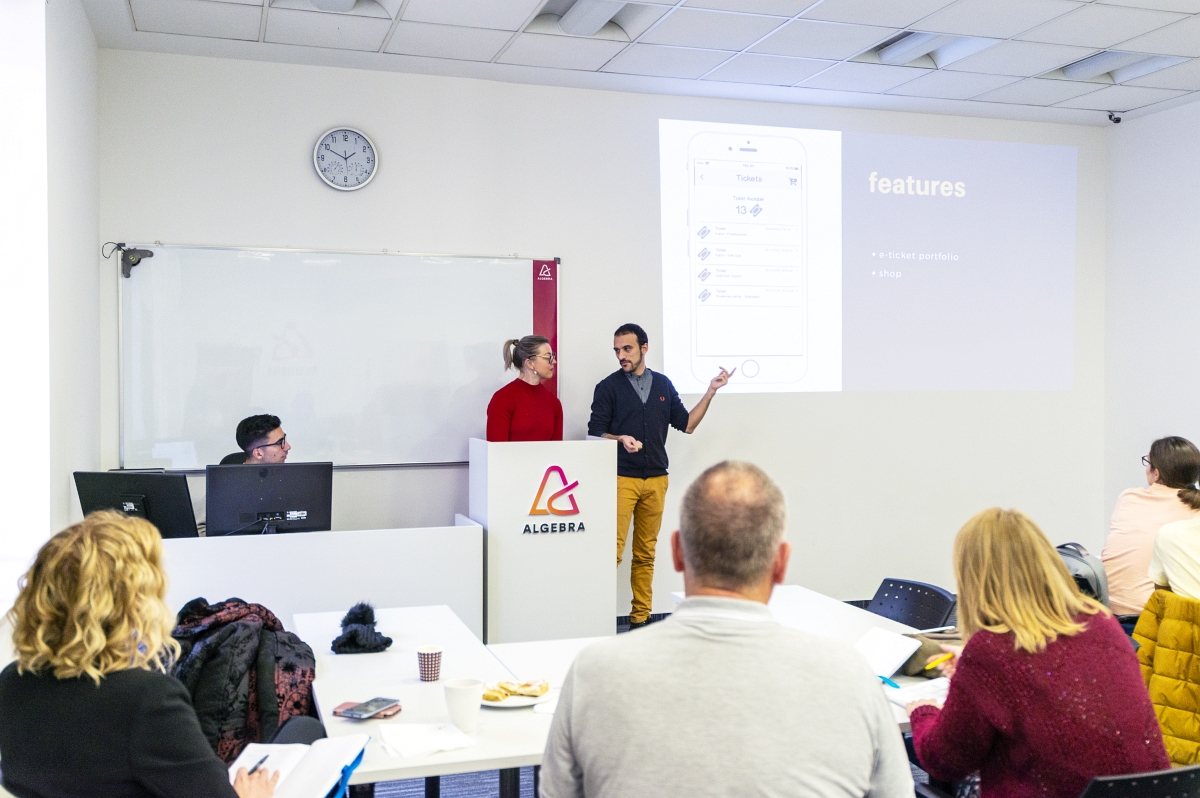
"The people were hands-down the highlight of my trip, everyone I met in Croatia was so nice and helpful. They will always be in my memories and have definitely shaped my great impression of Croatia. Don’t get me started on the food as well, one word – 'mmm'," he continues.
Haitham is not the only one who has found Zagreb and Croatia to be pleasurable destinations.
“Three weeks in January away from the dismal English winter, exploring the land of a thousand islands, of fairy tales and Game of Thrones shooting locations, while learning new technology trends at a premier educational institute and adding qualifications to my CV? Yes, I was more than interested!” explains Somdutta Sarkar, a student originally from India who is currently studying in the UK.
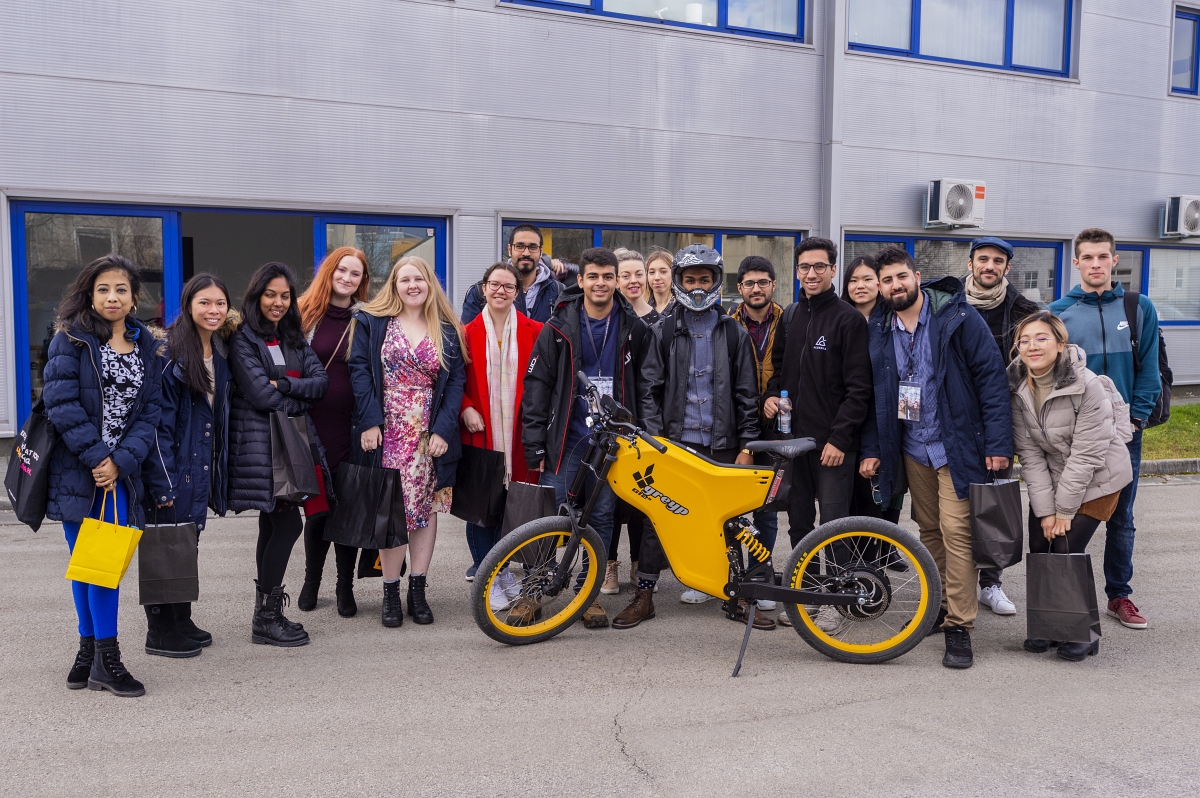
When Algebra started attracting international students to the Algebra University College, they approached the organization of their International Summer School with immense enthusiasm and a "can do" attitude. "Little did we know that our success depended much less on us than on the overall issue of attracting international students to Croatia and proving that Croatia is a great study abroad destination," Lidija Šimrak, Algebra’s International School Project Manager, explains.
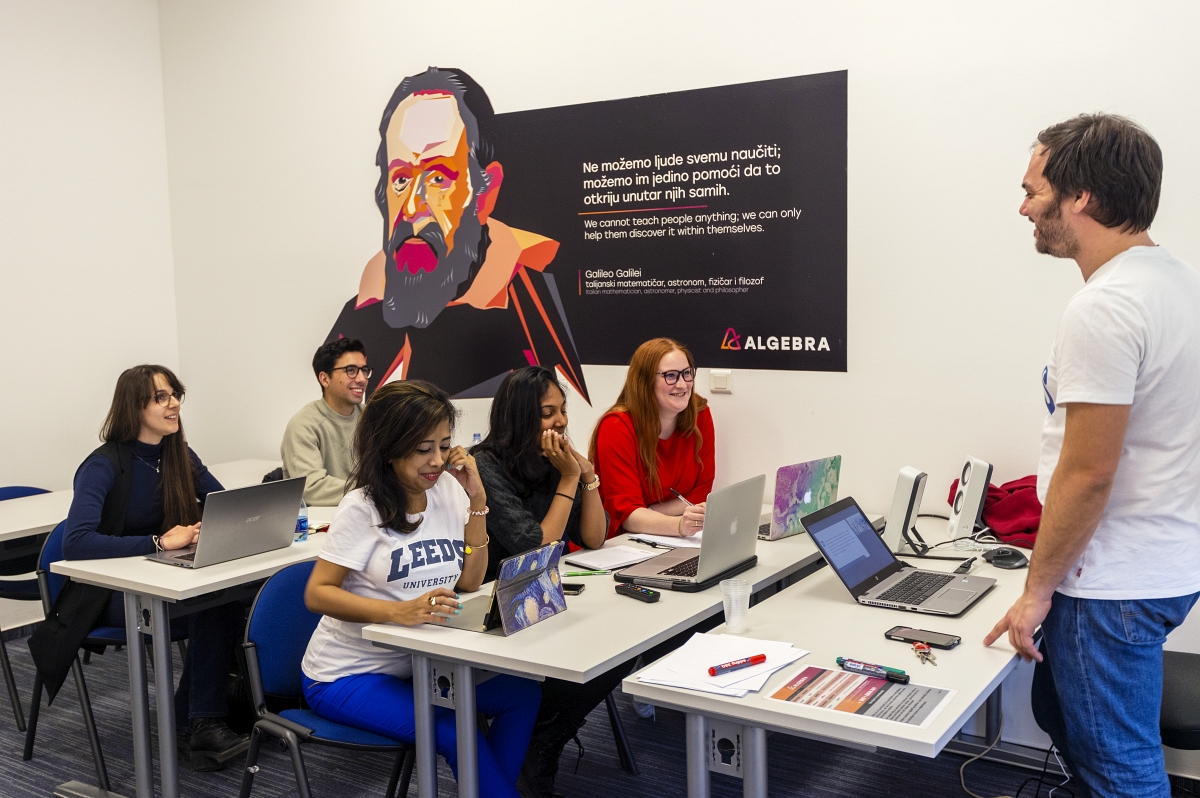
To achieve that goal, Algebra needed all Croatian institutions united and willing to invest time, resources and money in attracting brilliant and curious young minds to explore everything our country has to offer. "We are so proud that more and more Universities in Croatia realize this potential and strive in the same direction now. Each year we are getting more and more students on our short International Summer and Winter School programs, more Master students and are planning to start enrolling Bachelor students as well due to the overall interest.
Our labor market is in need of educated, ambitious and creative young minds, and with enough help from the education institutions we can change the current gloomy state of things," Šimrak explains.
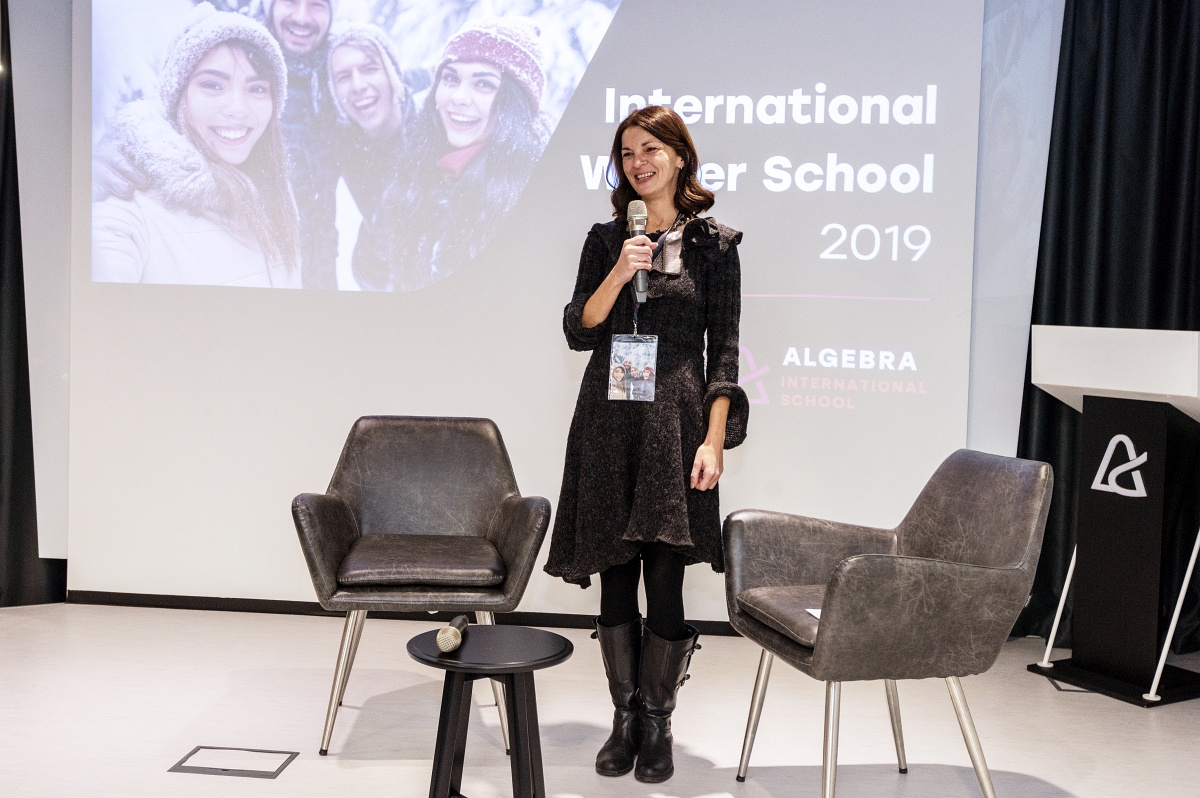
With one more International Winter School behind them, Algebra can certainly claim it was very successful and has checked all the boxes they hoped it will. Young people from all over the world chose Croatia as their place to be during the winter break and chose Algebra as a place to learn something new.
There were three courses to choose from – Digital Marketing; with joint certifications by Google AdWords and Google Analytics, Cyber Security; with a focus on ethical hacking, breaking into the systems and protecting the systems from real hacking, and every industry’s new favorite; Artificial Intelligence. Considering Algebra University’s academic partnerships with companies like Microsoft, IBM, and Cisco, and the accreditation of its professional study programs by European bodies like NVAO and ASHE, it is no surprise that the winter school programs are particularly geared towards creating a digital future. Croatia, after all, is also the land of technological innovations.

When international guests representing some of the best universities in the world visit Algebra, Algebra's staff like to point out some of the key technological advances and discoveries that were made in Croatia – namely that this is a country where fingerprinting was developed into a method of identification, where the parachute was invented, where the precursor to atomic theory was nurtured, and also where Nikola Tesla was born – the man who practically invented the future we now live in. With such a versatile group of students, the process of internationalisation is just as beneficial to the lecturers. Teaching students from all over the world, getting to know them, see the way they think and how their cultural differences are overshadowed by the same interests is a reward on its own.
Maja Brkljačić was one of the lecturers on the programme. She says: “What I enjoy most about teaching this program is the chance to teach foreign students. I have been working with international students for several years, both at International Winter and Summer school. I have found our students to be a lively group, always ready to chat and make jokes, but when it comes to sit down and learn I have found them focused, highly motivated and I have enjoyed their discussions greatly.”
Robert Petrunić, one of the leading Croatian IT security specialists, also taught a course on the program.
“What I love the most about teaching our students is the diversity I have in the classroom. This diversity brings new challenges to me as a teacher and a joy to the students and myself when this diverse group is acting as a single entity," he says.
"I enjoy the experience of teaching students from different cultures, different countries and experience of collaboration between them. What I like about our international students is the way they handle a new country, new teaching processes and the knowledge that is overwhelming at some points. It creates a little bit of tension, and I love seeing how they relax during the process when they become friends with their teachers, lecturers, staff of Algebra University College and most of all their colleagues," said Vanja Šebek, one of the lecturers on the digital marketing program in Winter School, and the head of the graduate programs in the field.
There is no better time to make Croatia a desirable study abroad destination, Lidija Šimrak believes. "Our silver in the World Cup last year, famous Game of Thrones filming locations, our beautiful coast and the fact that it is not an expensive destination puts us on the map as a great location for international students. Moreover, we try to incorporate as many field trips and company visits as possible in our three-week International Summer and Winter School programmes to show our students not only our stunning nature, but also our business success stories. It really is of great importance to show the students the bright side of our economy and show them the future of Croatia’s digital technology industry," she says.
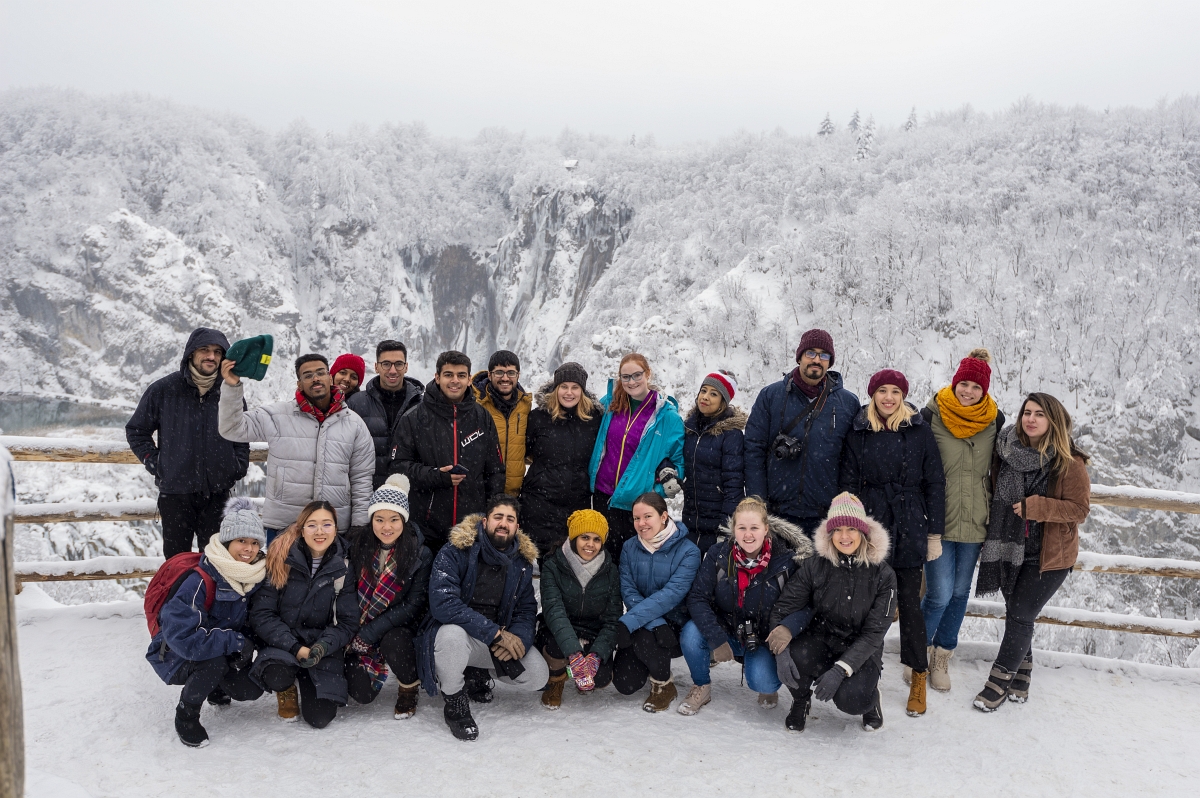
This year, in July, Algebra’s International Summer School will take place in Zagreb and Šibenik where they will be offering the students 8 different courses they can choose from. The shaping of digital future comes from various branches of technology, so they offer courses that are both creative and in accordance with the demands of the industry.
"The programme tries to be high on involvement to facilitate the learning process; it even includes a workshop on financing startups, and another in Croatian language and culture, as well as social events and company visits. My experience has taught me that only good things can come of projects like our International School summer and winter programs," Lidija Šimrak explains, and continues: "Not only is it a great promotion of everything we can offer as a country and as an educational institution, but also an opportunity to learn about other cultures, to not only teach our students, but also learn from them and their ambitions. We remain optimistic and enthusiastic about the future of internationalization of higher education and we will continue to do everything in our power to show international students why Croatia is an excellent choice for a study abroad experience. Our mantra is to lead by example and encourage not only our students, but also other educational institutions to recognize the potential of internationalisation."
About Algebra University College:
Algebra University College is the flagship of largest private educational organization in Republic of Croatia and the region, present today in more than 20 cities across Croatia. Founded in 1998, we currently have more than 120 full-time employees and more than 400 associated experts. Throughout our first 20 years, we got to know all of you pretty well, and we firmly believe that you deserve only the very best. Learn more from the official Algebra website.
Croatia's Algebra LAB Passes European Commission Evaluation
Excellent news for one innovative Croatian company as the European Commission gives them an official nod of approval.
Algebra LAB Data Science: New Opportunity to Increase Competitiveness of Croatian Tourism
June 12, 2018 - Improving tourism competitiveness through technology - meet Algebra LAB.


